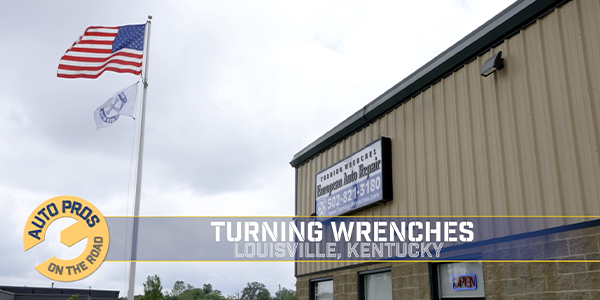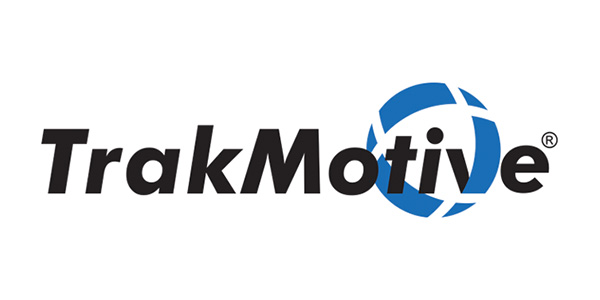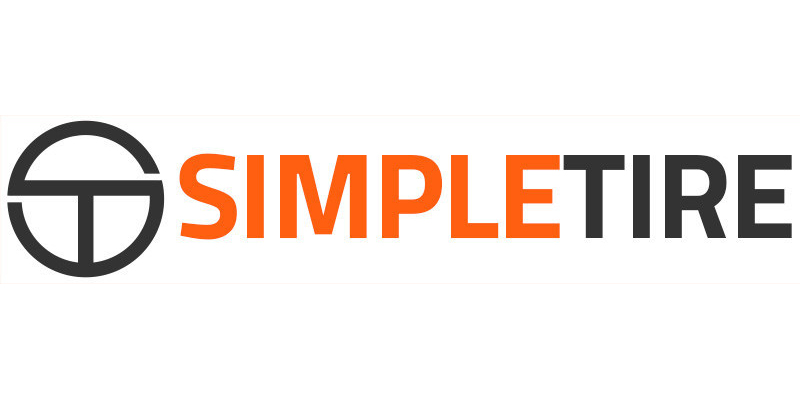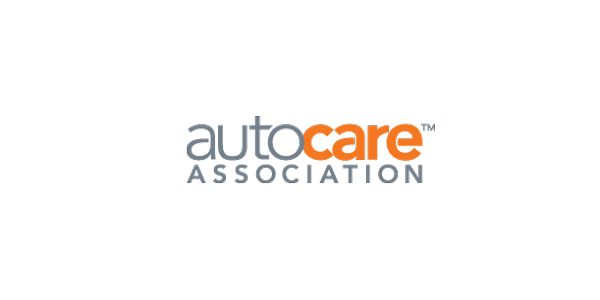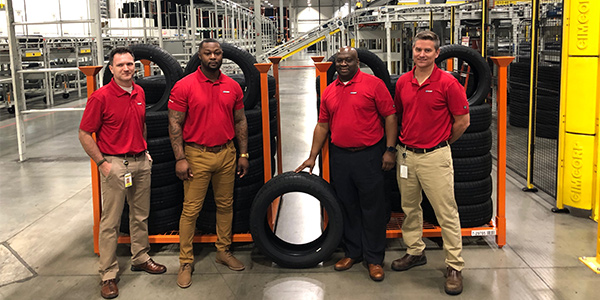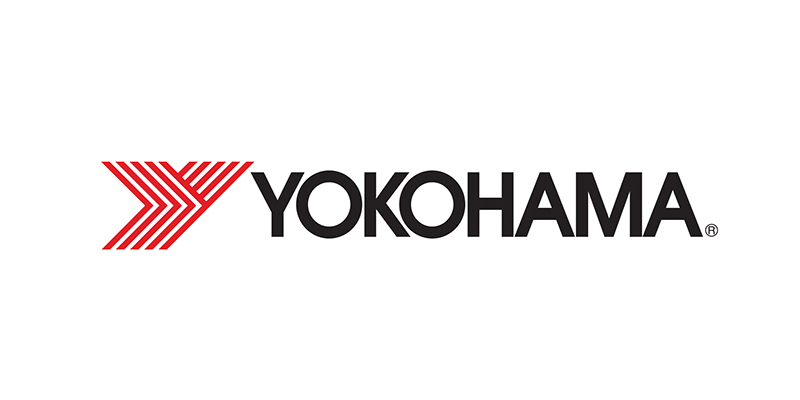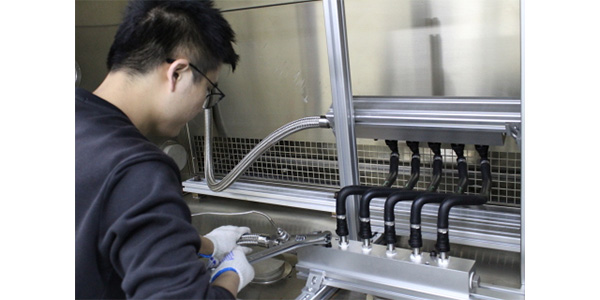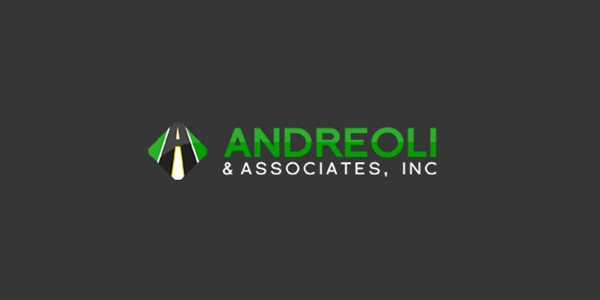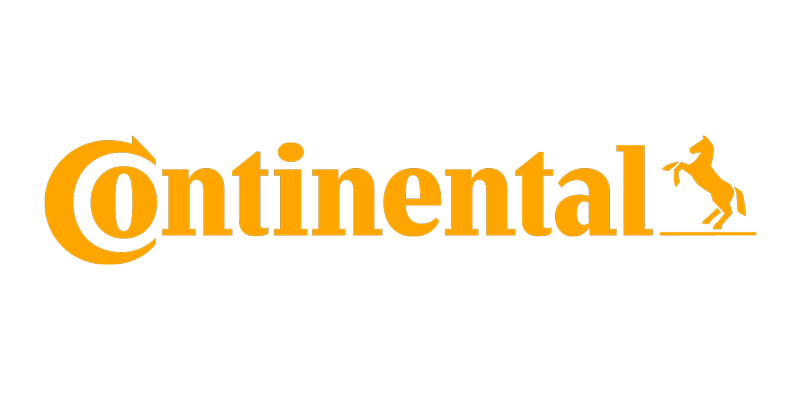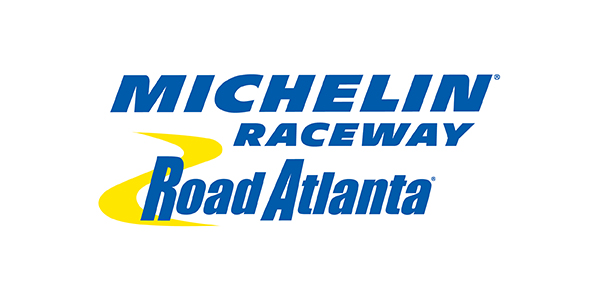When Onkar Kanwar took over Apollo Tyres Ltd. In 1980, the company was a huge mess. Bad tires and worse management had driven the company – founded by his father in 1976 – into bankruptcy, its net worth wiped out five times over.
But nearly 30 years later, the 66-year-old chairman sits atop India’s largest tiremaker and a budding global powerhouse with sales of more than $1.5 billion last year.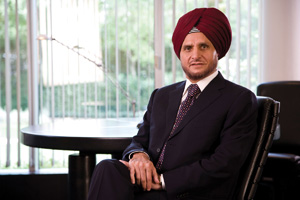 In 2006, Apollo acquired Dunlop Tires in South Africa. Earlier this year purchased Vredestein Banden from bankrupt Amtel-Vredestein for an estimated $300 million, and it will soon open a Greenfield passenger radial plant in Chennai, India.
In 2006, Apollo acquired Dunlop Tires in South Africa. Earlier this year purchased Vredestein Banden from bankrupt Amtel-Vredestein for an estimated $300 million, and it will soon open a Greenfield passenger radial plant in Chennai, India.
With Kanwar at the helm, Apollo has progressed from low quality bias ply truck tires to highly regarded producer of radial passenger, light truck, medium truck, OTR and ag tires and retread stock. Its 10-plant footprint is weighted heavily to the replacement market, but Apollo has been gaining domestic OE fitments.
In this exclusive interview – his first with a North American tire magazine – the Apollo chairman discusses the company’s resurgence, current situation and future plans.
Give us a brief overview of the company’s history and your role in building the company.
Apollo is just a little over three decades young. Compared to the tire majors we are still in our infancy. But that’s what I think has worked in our favor so far.
Apollo was established in 1976 by my father, who really wasn’t a tire man at all. His interest was more in steel and building a diversified group of companies. We began a technical collaboration with General Tires of the U.S., a fabulous relationship but the wrong technology. U.S. tire compounds and construction do not work here. Our roads and temperatures are vastly different – but no one had factored that in.
By the time I started working at Apollo, we were in trouble. More failed tires were coming back than good tires getting made! Debt had piled high. Morale was low. It was a challenging time and I think it is those days that have encrypted the DNA of Apollo Tyres – a thinking that tough times don’t last, tough people do.
I had just returned from the U.S. after my graduation (from the University of California) and told my father that I was willing to take on the challenge of turning this company around. He was into his other businesses, and so allowed me a free hand.
With a small dedicated team, I pared down our product focus to just truck tires. Eventually the team tasted success with a truck tire called Hercules. At that time, truck tires constituted nearly 95% of the market and that’s why our legacy and brand has been built on the success in commercial vehicle tires. In a decades time Apollo was the No. 1 truck tire manufacturer in India.
Of course it was not as simple as it all sounds. We had enormous ups and downs. But the key aspect is that in a company whose net worth had been wiped out five times over, and had no technology, no network or resources to count on, a very young and inexperienced team delivered. That’s where my belief in people and our ability to deliver stems from.
I continue to believe that if given the right direction, people in Apollo will create successes out of very little. And it is from the success of the early days that I believe that whatever we do, we must strive to be the best. Being second is not good enough.
Over time, we moved on and now produce the entire range of tires for India and many for the world. But I continue to remain impatient. I know there is a lot more that we can do, not just in tires as a product, but in HR, technology, communication practices, and of course creating a vibrant unit, which we call the Apollo One Family.
My role today is often to set the pace. Give direction and facilitate. I push the pace. I am the most impatient person around. My role is to ask questions and find out where I can make a difference. It has been a great journey. And I believe it’s just begun.
Talk about Apollo’s guiding philosophy and business model and how you see that contributing to its growth and stability.
I am a firm believer in profitable growth. Market shares are important, but marketshare without profitability or growth is not a viable means for the long term. The other aspect that I believe in is the need to create something long-term – an institution. These two go hand-in-hand and support each other and will enable Apollo Tyres to plan for the future.
Besides this, we are focused on running our business ethically, transparently and by fair means. We are ever keen to create opportunities where others have only seen challenges; we are focused on creating growth opportunities for our people and as we grow over time we commit more time and more of our resources to giving back to the community.
Over time, those systems and processes, along with the people-power that we have, will give Apollo Tyres the vital push it requires to remain a long-term tire manufacturer.
Over the past five years, Apollo has been quite ambitious. You’ve acquired two tire companies in different parts of the world. You have built new plants in your home country and have considered expanding manufacturing to Europe. Tell us about these expansion efforts and how they will improve distribution of your products and build your core brand.
This is part of our planned roadmap for the future. It is an imperative if we are to continue to grow and provide opportunities for our people. Expansion across borders is also a need in a highly globalized world.
Having established ourselves in our home market, Dunlop provided us with the right opportunity in South Africa. For the past three years, we have worked with the Dunlop brand in South Africa to strengthen it further and increase efficiencies. At this point we are now looking to expand Dunlop’s brand presence across the African continent. We will be marketing both Apollo and Dunlop across the continent.
Europe is the world’s most challenging automotive market with the most conscious customers and, therefore, is no cakewalk. The acquisition of Vredestein has brought with it many positives that will work in our favor in building both Apollo and Vredestein in Europe. I do not think this will happen overnight, but we are hard at work on this.
For us India, Africa and Europe are our three key domestic markets, where we have manufacturing bases. We will grow this further but in a manner where we are able to give our best products and services to our customers.
Were the acquisitions of Dunlop Tyres International and Vredestein part of Apollo’s growth plan or simply a matter of being in the right place at the right time?
Since 2005 we have been working towards a plan and both acquisitions are part of that planning process, as is our Greenfield plant in Chennai. We had set ourselves a target of becoming a $2 billion company by the end of the financial year 2010-11. To do this, we charted out exactly how and where we would need to grow both organically and inorganically. We have been working on implementing this roadmap for the past few years and I am happy to say that we are very close to achieving all that we had set ourselves in 2005. Of course, luck always plays a role. But I believe that fortune does have a greater propensity to favor the brave and the hard working. Therefore, when opportunities have presented themselves we have been ready and able to utilize them to our benefit.
How will Vredestein fit into Apollo’s plans? Will it be your lead tire brand overall or just in certain markets?
Vredestein adds huge value to Apollo in terms of passenger tire technology and also presence in Europe. Teams are currently working all this out both in terms of brand positioning and setting specific tires for certain markets. There are also the logistics of manufacturing various brands across locations and the best utilization of all our sales and marketing locations. We will be able to clearly spell out details a few months down the road.
How do you see Vredestein’s technology integrating into Apollo’s efforts? What does Apollo bring to Vredestein?
Each is an entity within Apollo Tyres, and each set of people have their unique strengths and that’s the reason this makes for a good strategic fit. Apollo brings a large measure of stability to Vredestein, especially after the past two years that the company has gone through. The larger entity will also be able to bring costs down, leverage cheaper funds, and, of course, create a larger market for Vredestein’s products.
Given the massive failure of the Vredestein-Amtel relationship, what do you feel Apollo brings to the table that will stabilize Vredestein and assure long-term growth and success?
We are not short-term investors and, therefore, our approach to acquired companies is one of creating a foundation which can create growth and success over the years. You will understand that as a small stand-alone player amongst the European Big Boys, Vredestein’s ability to grow has been only that much. It does not have the ability to increase capacity at its plant in Enschede. What it produces it sells. Therefore, if Vredestein wants to continue to grow it would need to look at leveraging larger resources of people, capacities and markets. That’s where Apollo comes in, in ensuring growth for Vredestein products and people over the longer term.
With the Vredestein acquisition Apollo cancelled its plans to build a plant in Hungary. Is Apollo still looking to build its own plant somewhere in Europe? What is the timeline for that?
Over a period of time we will need more capacity in Europe. However, I am unable to tell you now when that is going to be. At this point, our key task is to ensure the long-term prosperity of Apollo Vredestein in Europe. Once that plan is in place and working smoothly, we will be ready to take the next step forward. In the mean time we will continue to look for appropriate opportunities.
While Apollo appears interested in Western markets, what about Eastern markets? Is Apollo considering moves into Asia (China, Japan, South Korea, Indonesia, etc,)? If so, are there specific markets you are targeting there and how do you plan to enter those markets?
Eastern markets already play a key part role in selling our tires. Most of this is serviced through exports out of India at this point in time. As I mentioned, we have been looking at various possibilities and options in Asia and will continue to do so, until we find the option that has the best strategic fit for us.
How much exchange and integration will there be between Vredestein and Dunlop in Southern Africa?
They are one company now. The process has already begun of people and know-how exchanges between India, South Africa and Netherlands. We already have people from South Africa and India moving to the Netherlands, and people from Vredestein coming to India. In fact, as part of the larger integration process we will have 50 of the top managers from Vredestein spend an entire week in India, along with their Indian and South African counterparts to broadbase the entire effort of knowing, understanding and acting to maximize each other’s potentials. We had done this with South Africa earlier and it has been a very successful.
What do you see as being Apollo’s future in Africa? What thought has there been toward expanding across the continent?
We have taken our time. Now that the South African operations are running at optimum levels, we have begun our larger journey to increase our footprint on the continent. Africa has great potential both from South Africa and India, and we are working cohesively towards creating a long-term business there. We have already opened a sales office in Nigeria. The next one is coming up in Egypt. These will act as large distribution hubs. We are looking to leverage the brand value that both Dunlop and Apollo enjoy in Africa and the varying product mix that these two brands bring to the table for our African customers.
Regarding your home market in India, the automotive market there seems poised to explode. Other global tire companies are taking spots there. What is Apollo planning to do to protect its home turf?
The age for protecting turf is really over. All markets are free and any one is free to come and operate in any market. In India, Indian players like Apollo have long prospered despite the presence of larger global brands like Bridgestone, Goodyear and others that manufacture here. Michelin is once again talking about setting up manufacturing here. Many others are importing into India on a large scale. Competition is good and I welcome it. At the end of the day, I am confident of Apollo’s products, capabilities and service to our customers. We enjoy a tremendous brand loyalty in certain key segments of the market and as a market leader we will continue to give our customers what they need to build on and retain their loyalty.
As you are aware, we are already in the next stage of growth with a large greenfield facility near completion in southern India. This will be producing truck-bus and passenger radials only. We are already the largest producers of truck-bus cross ply and passenger radials in India. In terms of capacity, Chennai will leapfrog us much ahead of competition. In each of the five key segments in India – truck-bus radial and cross ply, light truck, farm and passenger car – we have a leadership position. Through product excellence, customer service and sales and marketing initiatives we will ensure that this equation does not change but gets stronger with enhanced competition.
From a tire technology standpoint, India has not been considered to be very sophisticated. How that has changed in recent years, and what do you see as being the drivers behind that shift?
You are right. India has traditionally been the best cross-ply manufacturers. Much of it is because of our infrastructure and the vehicles. However, that has been changing rapidly over the past few years.
The key drivers have been better infrastructure, new models of commercial and personal vehicles, more aware customers, and, of course, living in a globalized world helps.
Beyond construction technology, now that we are exporting to a lot more destinations, our products, too, have evolved tremendously. The European norms have a high impact on aspects like materials used, noise and rolling resistance. These have been learnings for us, allowing us to move up the value chain faster than otherwise.
At Apollo, our investments in research and technology have gone up substantially in the recent decade and we are looking to enhance these further to ensure that we stay in tune with changing times. This is one of the reasons why we decided to move beyond the security of the Indian market. Newer markets bring newer learnings and allow us to both create better products and give many more opportunities to our young employees.
Talk about how the Indian market has changed to spark growth of the entire automotive sector there. How has the tire industry there benefited?
India has always been a magical market. The variations in infrastructure, driving habits, vehicles and climate, is probably not captured in any other single country. The country posed different kinds of a challenge when we were a closed economy. Since 1991, with the opening up of the Indian economy, we have seen the automotive engineering and manufacturing talent in this country flower. What has happened since 1991 is the growth of the Indian entrepreneur and with the rise in disposable incomes, the automotive and telecom segments have become the fastest growing in the country.
Within the automotive sphere, tires continue to attract the least mind space from customers, but for us it has been a coming of age in terms of technology, capacities and product development. One of the areas that we continue to lay great emphasis on is customer education, both commercial and personal. With the advent of newer generation vehicles and better roads, there is a growing need to educate customers on the right tire for their vehicle and driving style – it’s usage to enable maximum life. This is especially true in the case of commercial vehicles, where proper usage results in hard savings.
In terms on working with OEMs, earlier this was more of a transaction. Increasingly we are working more and more with OEMs from the time the vehicle is in the conceptual stage. This allows manufacturers like Apollo to work with OEMs on developing tires ideally suited to the vehicles they are producing.
It terms of the global tire industry, what are Apollo’s goals? What will it take for you to meet those goals?
We have been setting some steep targets for ourselves. Over a period of time I would like to see Apollo break into the Top 10 in the world. I know this is possible. Given that, we have specific focus areas that we are working on, the three key areas are people, technology and quality.
The North American market is not currently on Apollo’s radar screen, but certainly it has to be somewhere in your plans. What will it take for you to enter our market here? What is the timeline?
At this point we have our hands full and are not looking to enter newer markets in a hurry. Vredestein has a certain amount of sales in the U.S., so we will be looking at ways to enhance the brand value that it already enjoys in the U.S. However, having said that, if the right opportunity presents itself we will surely look at it closely.
In terms of entering the North American market, do you see that coming as organic growth by bringing the Apollo brand here, or could it involve a potential acquisition here?
It’s difficult to make such a prediction. As I mentioned, it would really depend on the right opportunity and how that adds value to Apollo and its plans going forward.
How long do you envision it taking for Apollo – through its Apollo brand – to be prepared to enter the North American market?
Really cannot say. It truly would depend on what the options are before us and what they have to offer.
Is Apollo seeking any joint venture partners in North America? Are you considering taking on private brand manufacturer for North American companies?
At this point in time, not really. However, if you have any recommendations, I would be more than happy to hear about them and look at the viability.
With its presence in Mexico, are you at all concerned that JK Tyre will have the huge jump on Apollo in the North American market?
Not at all. It’s a very large world out there and there’s ample room for all good, long-term players. We usually do not concern ourselves much with what others are doing. We work according to our five-year plans and prefer to use all our energies in achieving them.
How well do you think tires from India will be accepted in North America? Are they products tire dealers here will have success – and profitability – with?
It is difficult for me to make a decisive statement without studying the market fully. However, there is no reason why Indian tires should not succeed in North America. From Apollo, we export a certain amount – and growing – to Canada. At the end of the day, the product needs to speak for itself before anything else. And if we can give dealers the profitability they are seeking in all other markets around the world, I am confident that we can cater to North America’s unique needs also.

